Impactful and transformative authors recognized with Canada Prizes award
Canada Prizes celebrates first-time authors and established scholars while championing French and English language works and amplifying a broad scope of perspectives across disciplines.
Book cover of Deanna Reder’s, Autobiography as Indigenous intellectual Tradition: Cree and Métis âcimisowina Credit: Canada Prizes
Five Canadian writers were the recipients of the prestigious Canada Prizes award in recognition of their inspiring, impactful and transformative scholarly books.
Deanna Reder, professor of Indigenous Studies and English at Simon Fraser University, was recognized for her book, Autobiography as Indigenous Intellectual Tradition: Cree and Métis âcimisowina, published by Wilfrid Laurier University Press.
By exploring unknown, little known and neglected works by a range of Cree and Métis writers from the 1890s to the 1980s, Reder fills a Canadian literary gap.
Her unique monograph introduces readers to the works of significant Cree and Métis authors like Métis author, playwright, filmmaker and Elder, Maria Campbell; Canadian Cree Anglican clergyman Edward Ahenakew, who transcribed stories and myths of Indigenous peoples of Western Canada; and James Brady, a famous Métis political activist, leader and photographer who mysteriously disappeared while prospecting in Saskatchewan in 1967.
Reder’s book reveals a rich array of Cree and Métis, or nêhiyawak, writings interwoven with the authors’ life experiences.
Using Cree concepts to understand texts ranging from journals, manuscripts and sermons, to unfinished, unpublished, censored or limited circulation short stories and novels, Reder sheds light on the richness of Indigenous life and philosophies.
“Through my research, I found that understanding who you are, and who you’re related to, is foundational to Indigenous understandings of the world,” said Reder.
“The book provides understudied and undervalued evidence of the longstanding autobiographical practices that are engrained in Cree and Métis, and these life stories serve as an intergenerational conduit to pass on invaluable knowledge,” she added.
Book cover for Villian, Vermin, Icon, Kin: Wolves and the Making of Canada by Stephanie Rutherford Credit: Canada Prizes
Despite Canada having the largest wolf population in the world, Stephanie Rutherford, associate professor in the School of the Environment at Trent University, is the first to explore the social history of wolves in her book, Villain, Vermin, Icon, Kin: Wolves and the Making of Canada, published by McGill–Queen’s University Press.
The revelatory work underscores how Canada was largely made through relationships with animals and offers a model for more ethical ways of interacting with wildlife in the face of a global biodiversity crisis.
Rutherford’s work delves into the range of emotions and changing relationships Canadians have with wolves spanning the late the 1800s to the present.
While early settlers were afraid of wolves and the prospect of being eaten by them, by the 1920s, wolves were perceived as vermin targeted for elimination.
Then, the 1950s saw an emerging trend towards conservation as people began recognizing the value of wolves in maintaining a healthy ecosystem.
Today, public anxiety over wolves is heightened due to the growing prevalence of coywolves — coyote-wolf hybrids — in urban areas. Villain, Vermin, Icon, Kin: Wolves and the Making of Canada helps people learn to co-exist with, rather than dominate, wildlife by learning from Indigenous ways.
“I undertook this work because I was interested in understanding the level of emotions people feel when it comes to wolves. What is it about this animal that generates either deep love or deep hate?” said Rutherford.
Cover of Celeste E. Orr’s book, Cripping Intersex Credit: Canada Prizes
Celeste E. Orr, assistant professor of Sociology and the Wendy J. Robbins Professor in Gender & Women’s Studies at the University of New Brunswick and first-time author, won for their book, Cripping Intersex, published by the University of British Columbia Press.
This work explores the connection between intersex and disability, dismissing society’s common view of those whose anatomy doesn’t fit into a traditional Western male-female sex binary as having a disability, disease or disorder that must be cured by medical intervention.
Orr points to studies showing that medical procedures done non-consensually on intersex infants or youth often lead to them having short or long-term disabilities including sterilization and increased infection, anxiety, depression and suicidal ideation.
Drawing attention to societal discrimination and oppression against intersex people, Orr argues those negative views and actions are rooted in racism, ableism, queer phobia and colonialism.
“My book demonstrates that there is a concerted eugenic effort aimed at eradicating intersex people and intersex variations. The hope is that this work will help combat the ableism that fuels interphobia — discrimination against people who have intersex traits — and contribute to ongoing conversations that will help bring about a more equitable and just world.” Orr said.
In addition to investigating medical treatment of intersex people, Cripping Intersex also reviews protocols and policies surrounding sports sex testing and segregation, and preimplantation genetic diagnosis, a reproductive screening technology that can accompany in vitro fertilization to detect “undesirable” characteristics.
Book cover of Penser la «pervertibilité» – Avec Jacques Derrida by Nicholas Cotton Credit: Canada Prizes
First-time author, Nicholas Cotton, teacher-researcher in literature at Collège Édouard-Montpetit with a doctorate in French-language literature from the Université de Montréal, was recognized for his book, Penser la «pervertibilité» – Avec Jacques Derrida, published by Les Presses de l’Université de Montréal.
Cotton’s book, which translates to Thinking “pervertibility” – With Jacques Derrida, explores more than 80 titles by French philosopher Jacques Derrida, who developed the philosophy of deconstruction – a set of approaches to understand the relationship between text and meaning. Cotton explores the notion of “pervertibility,” one’s ability to be perverted or corrupted, which he found to be a common idea throughout Derrida’s writings.
Cotton is the first to draw on these works from the second half of the 20th century to demonstrate the “perverse” devices of philosophical thought intertwined in the writings in order to give readers a better understanding of the world and its history.
He also sheds light on how the philosopher described “pervertibility” – which takes several forms throughout his works and explores the link between this concept and psychoanalysis.
“My book provides a better understanding of Derrida’s thought and style, and how both evolved,” Cotton said. “It makes a substantial contribution to current work in literature and philosophy, the fields of knowledge and practice to which the works primarily belong, but also in psychoanalysis and, more generally, to the history of ideas.”
Pascal Riendeau’s book, Regards sur le monde. Conflits éthiques et pensées romanesques dans la littérature française conteporainm Credit: Canada Prizes
Regards sur le monde. Conflits éthiques et pensées romanesques dans la littérature française contemporaine, published by Les Presses de l’Université Laval, was authored by Pascal Riendeau, professor at the University of Toronto Scarborough.
The English translation would be, Views of the world. Ethical conflicts and romantic thoughts in contemporary French literature.
Riendeau found that ethical issues play an important role in many late-20th to early-21st century works of fiction. So, he set out to analyze the texts of five contemporary novelists in order to gain a better understanding of the function of ethics in the writings of our time.
The result was a first-of-its-kind book that explores the work of contemporary authors Milan Kundera, Michel Houellebecq, Camille Laurens, Éric Chevillard and Pascal Quignard, focusing on themes, situations and discourses.
Riendeau assesses the works’ structure and situations based on conflict and reflection.
“I’m a literature professor who sincerely believes in the importance of literature – for pleasure, learning and above all, understanding the world. I think it’s highly relevant to take an interest in all art forms (literature, film, visual arts) in order to better interpret the state of the world around us,” Riendeau said.
Presented by the Federation for the Humanities and Social Sciences – a national non-profit voice for researchers in the humanities and social sciences in Canada – the award recognizes outstanding authors and works that provoke and inform national conversations on important topics while focusing attention on the contribution scholarly writing makes to Canadian society. Each author was awarded $4,000.
The Prizes celebrate a range of voices, from first-time authors to established scholars, while championing French and English language works and amplifying a broad scope of perspectives across disciplines, in line with the Federation for the Humanities and Social Sciences’ commitment to equity, diversity, inclusion, and decolonization. The Prizes are independently juried by the Scholarly Book Awards Academic Council.
*A version of this article first appeared on rabble.ca
Thanks to everyone who read today’s article. With your continued support, a little Nicoll can make a lot of change.



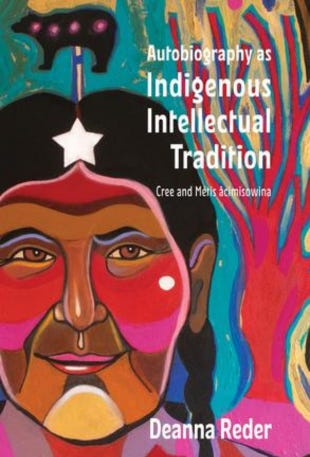
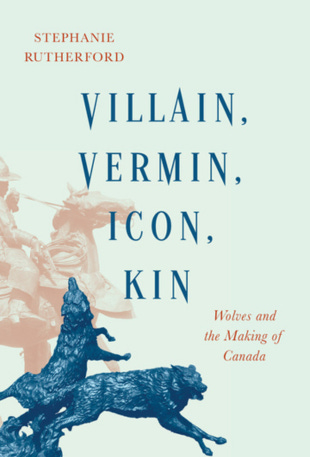
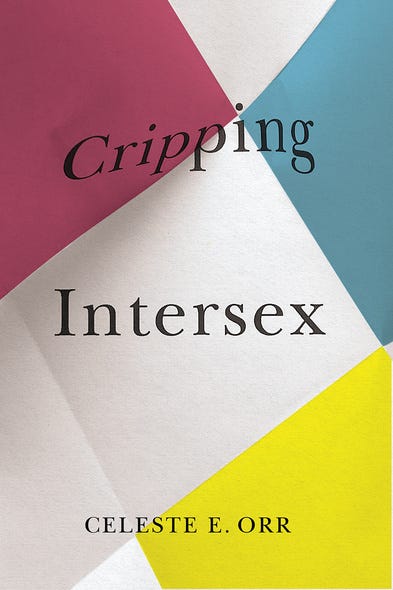
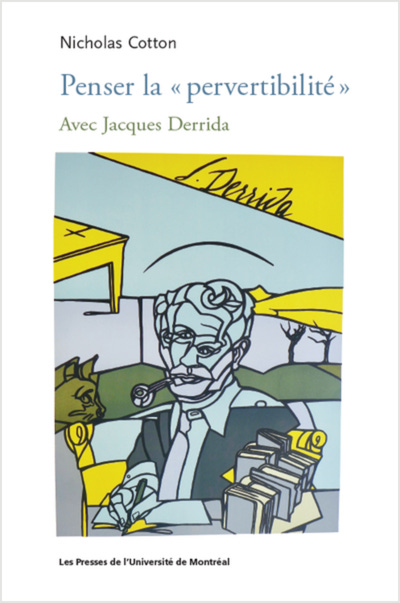
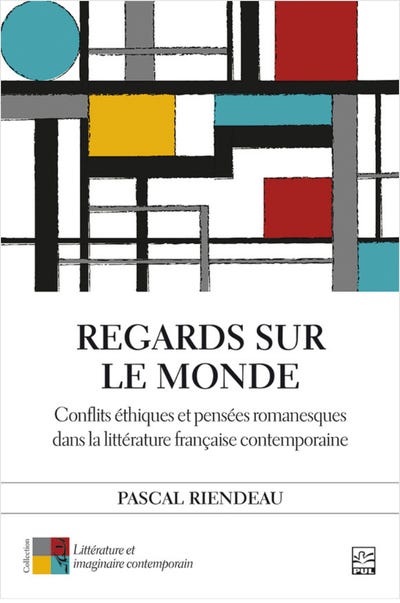
Great to recognize first time authors!